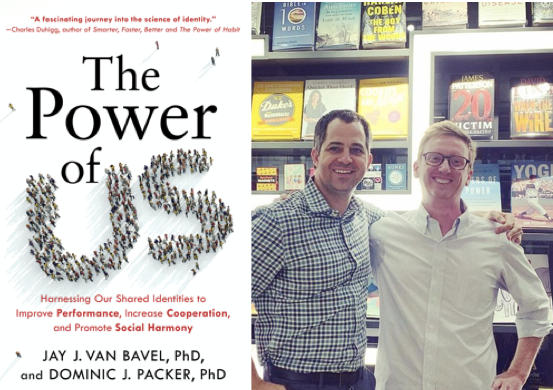- Details
- News
THE POWER OF US explores the dynamics of shared, social identities. What causes people to develop social identities? What happens to people when they define themselves in terms of group memberships? Under what conditions does the human proclivity to divide the world into “us” and “them” produce toxic conflict and devastating discrimination? And how can shared identities instead be harnessed to improve performance, increase cooperation, and promote social harmony?
- Details
- News
In her new book You Have More Influence Than You Think social psychologist Vanessa Bohns draws from her original research to illustrate why we fail to recognize the influence we have, and how that lack of awareness can lead us to miss opportunities or accidentally misuse our power. Whether attending a meeting, sharing a post online, or mustering the nerve to ask for a favor, we often assume our actions, input, and requests will be overlooked or rejected. Yet Bohns and her work demonstrate that people see us, listen to us, and agree to do things for us much more than we realize — for better, and worse. You Have More Influence Than You Think offers science-based strategies for observing the effect we have on others, reconsidering our fear of rejection, and even, sometimes, pulling back to use our influence less. It is a call to stop searching for ways to gain influence you don’t have and to start recognizing the influence you don’t realize you already have.
- Details
- News
 We all know workplace stress isn’t fun, but it may actually be killing you. Stanford professor Jeffrey Pfeffer argues that it is in his latest book 'Dying for a Paycheck'. Pfeffer argues the wellness revolution that has seen the introduction of workplace perks like yoga classes or mindfulness programmes has done little to tackle the underlying causes of workplace stress. He calls for a radical end to toxic employment practices – from job insecurity to overtime – that contribute to mental and physical health issues. He discussed the book, his views on leadership, and why authenticity is overrated on The Depolarization Project’s Changed My Mind podcast.
We all know workplace stress isn’t fun, but it may actually be killing you. Stanford professor Jeffrey Pfeffer argues that it is in his latest book 'Dying for a Paycheck'. Pfeffer argues the wellness revolution that has seen the introduction of workplace perks like yoga classes or mindfulness programmes has done little to tackle the underlying causes of workplace stress. He calls for a radical end to toxic employment practices – from job insecurity to overtime – that contribute to mental and physical health issues. He discussed the book, his views on leadership, and why authenticity is overrated on The Depolarization Project’s Changed My Mind podcast.


